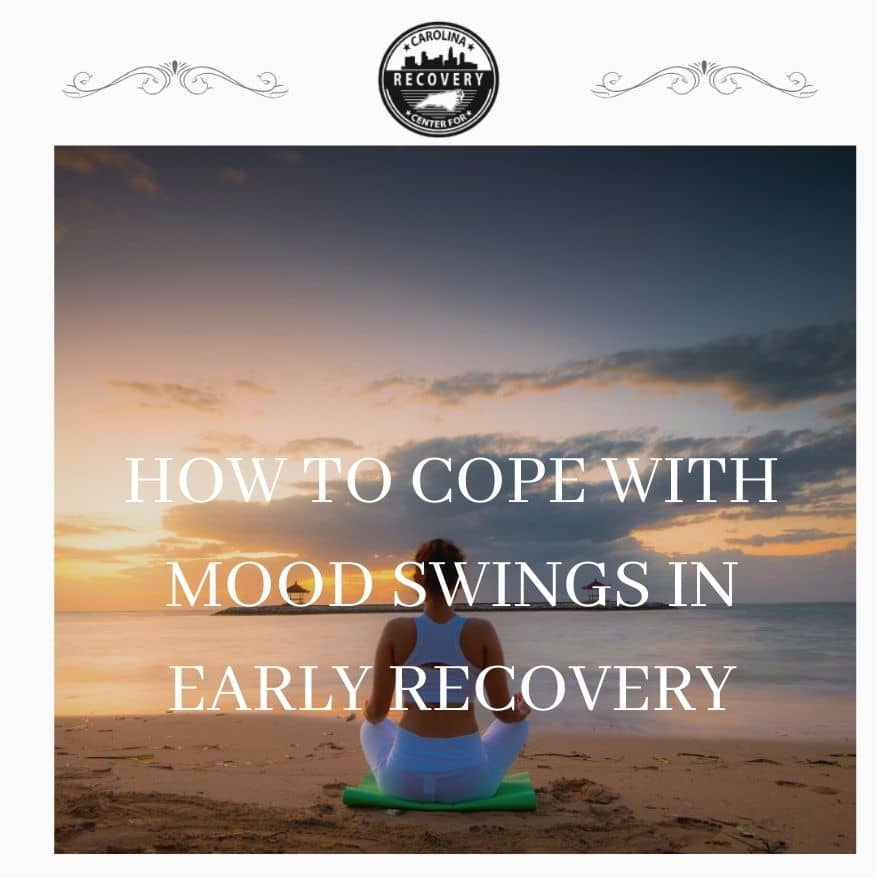How to Cope With Mood Swings in Early Recovery

Medically Verified: 2/1/24
Medical Reviewer
Chief Editor

All of the information on this page has been reviewed and verified by a certified addiction professional.
Recovering from addiction is not easy. While an addiction treatment program can provide you with all of the tools you need to successfully recover, applying those tools can be difficult.
Additionally, you are probably accustomed to using drugs or alcohol to numb uncomfortable feelings and emotions. Now that you are sober, dealing with emotions feels like jumping into the deep end without a lifejacket. Coping with uncomfortable emotions and mood swings in early recovery can be extremely difficult without the proper support.
Why Do You Have Mood Swings In Early Recovery?
There are many reasons you might be struggling with mood swings. First, you could suffer from an undiagnosed mental health condition. According to the National Institute on Drug Abuse, “7.7 million adults have co-occurring mental and substance use disorders.”[1] With that being said, the cause of your mood swings could likely be an underlying mental health condition.
There are other additional reasons that you could be experiencing mood swings. Substance abuse impacts your brain in numerous ways, causing neurotransmitters that are responsible for emotional control to become unstable.[2] This dysregulation can result in mood swings while your body is adjusting to sobriety.
Another reason you could experience mood swings is that you are not using positive coping mechanisms to deal with your emotions. When you were using drugs and alcohol you became accustomed to self-medicating your feelings with substances. Now that you are sober, you must replace the substances with positive coping mechanisms, which can be a difficult task to learn.
How to Manage Extreme Mood Swings In Sobriety
Dealing with mood swings in sobriety can be disheartening. When all you want to do is recover and live your life, experiencing unstable moods can get in the way of your goals.
Here are some of the best ways to manage mood swings in sobriety.
Find the Cause
First things first, you should always find the cause of your mood swings. Understanding where they come from can help you make an informed decision on the best way to cope with them.
Finding the cause of your mood swings can be difficult, especially if you are attempting to do so on your own. This is why it’s important to get help from a professional. Speak to your therapist, psychiatrist, or doctor about your mood swings – they can help you find the cause of your emotional instability and develop skills to cope with them that works for you.
Consider Therapy
Therapy is the best way to cope with mood swings or any other form of emotional issues you may suffer from in early recovery. Whether your mood swings stem from a mental health condition or the effects of long-term drug abuse, a therapist can provide you with the coping mechanisms you need to manage your emotions.
For example, cognitive behavioral therapy (CBT) is a technique that your therapist may use to help you deal with difficult emotions and mood swings. This therapy helps you learn how to respond to situations with calmer thoughts, leading to less severe emotional outbursts. In other words, CBT can help you learn how to retrain your brain to stop mood swings from occurring.
Practice Gratitude
People who regularly express their gratitude for the little things in life tend to be happier overall. But how can you practice gratitude if it’s a feeling?
One of the best ways to practice gratitude is by writing a gratitude list daily. On this list, you could write 5-10 things you were grateful for during the day. Doing this will remind you of the good things in life, providing you with feelings of happiness to combat your mood swings.
Engage in Self-Care
Recovering from addiction can be difficult and life can become extremely busy. From attending therapy sessions to going to support meetings and practicing your recovery maintenance techniques each day can leave little time left for yourself. However, you need to make time for self-care.
When you start to feel burnt out, your mood swings will probably worsen–especially if you aren’t making time to practice your self-care. Taking a little bit of time each day to do the things that make you happy could cause a huge improvement in your mood.
Try Meditation
Mood swings are all about emotional instability, so that means you need something that will help you stay even and grounded. One of the best ways to become grounded is to practice meditation. Meditation can help provide you with balance, control, and awareness of the turbulent emotions you may face.
Meditation can allow you to become one with your thoughts, feelings, and emotions, preventing you from having to guess why you are feeling the way you do. This can allow you to work through those emotions and stabilize your mood swings before they become unbearable.
Find Help for Drug and Alcohol Abuse Today
If you or a loved one suffer from a substance use disorder, it’s time to seek help. Addiction can lead to an array of consequences, including difficult-to-manage mood swings and emotional instability in early recovery, but a drug and alcohol rehab center can help you learn how to cope.
Contact Carolina Recovery Center today for more information on how to get started.
References:

